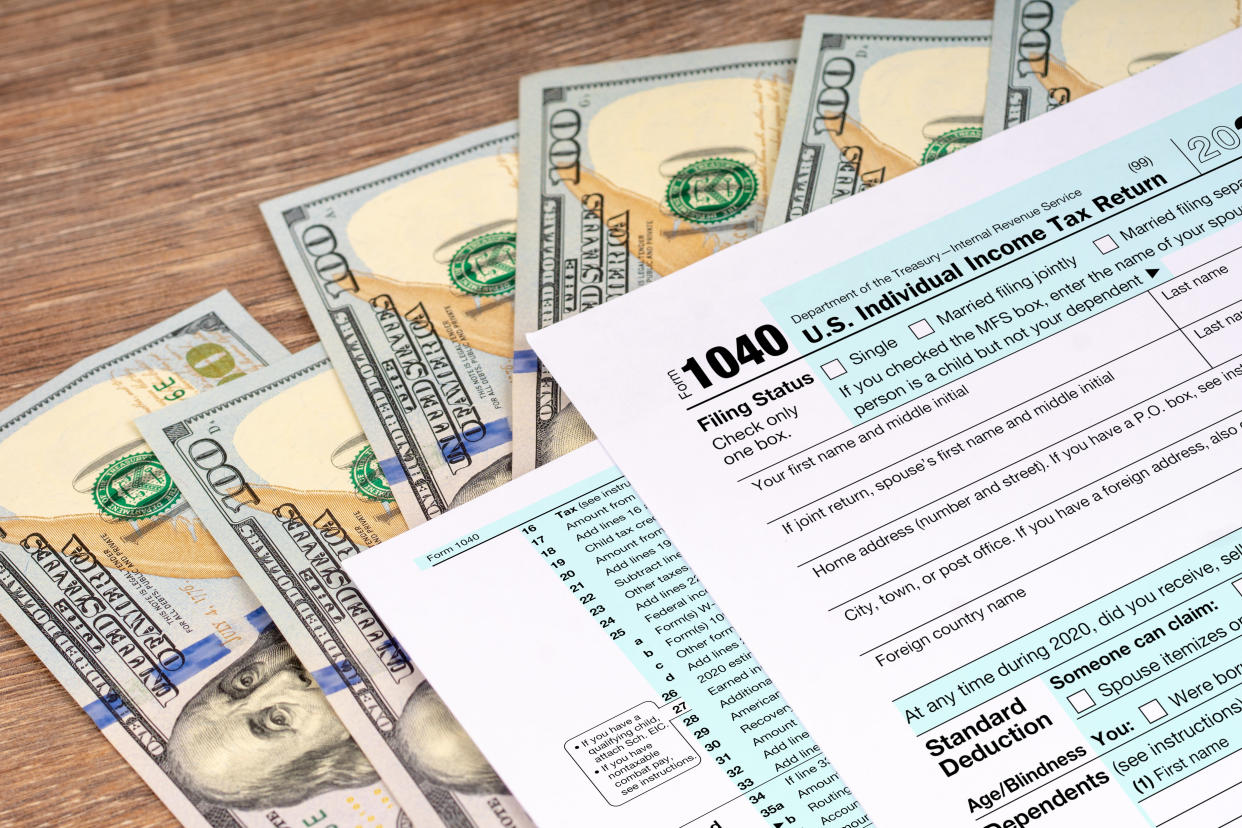The inflation-adjusted increases to certain tax credits, deductions, and tax brackets for next year could translate into larger tax refunds when folks file their taxes in 2024.
The tax bracket ranges are increasing by 6.9% on average for the 2023 tax year, according to the National Association of Tax Professionals. The standard deduction is rising 6.9% or 7.2%, depending on filing status, while the Earned Income Tax Credit amount will increase by 7.1%, the Internal Revenue Service announced this week.
While the IRS makes inflation adjustments every year, this year’s changes are even more crucial as Americans grapple with runaway inflation.
“Because inflation is the highest in 40 years, this is the largest increase in 40 years — so in 18 months, the average taxpayer will see a larger tax refund for 2023 tax season in 2024,” Adam Brewer, a tax lawyer and founder of AB Tax Law APC, told Yahoo Money. “It will help, but not immediately or, enough for people struggling — a small consolation for current woes.”
New tax brackets for 2023
Every year the IRS adjusts tax rates, as required by law, but not all tax rates are required to be adjusted for inflation. The adjustments to the rates also prevent what’s known as bracket creep, a scenario where a taxpayer is bumped into a higher tax bracket simply because their income increased to keep up with inflation.
“You should only go into a higher tax bracket if your income truly goes up due to a promotion or raise,” Annette Nellen, professor and director of the Master of Science in Taxation (MST) program at San José State University (SJSU), told Yahoo Money. “Not because of a 2% cost-of-living adjustment.”
The adjustment happens a year ahead to allow people to plan for estimated taxes and depreciation. It also helps employers that provide transit and parking benefits know the monthly allowance of taxable wages before January 1, Nellen said.
Here are the new tax brackets for the 2023 tax year.
Standard deduction increases for tax year 2023
The standard deduction, which 90% of taxpayers choose over itemizing their taxes, is also getting an inflation boost.
Married couples filing jointly (MFJ) will see a $1,800 increase in the standard deduction from the prior year. Head of household (HH) filers will see a $1,400 increase. Single and married individuals filing separately (MFS) will see a $900 increase in the standard deduction.
Earned Income Tax Credit increase for the 2023 tax year
For the 2023 tax year, the Earned Income Tax Credit (EITC) will increase to $7,430 for qualifying taxpayers who have three or more qualifying children, a $495 gain from $6,935 for the 2022 tax year. The IRS provides a table with the maximum EITC amount for other categories, income thresholds, and phase-outs in its revenue procedure.
Around 1 in 5 eligible workers miss out on this valuable tax benefit that is credited with reducing poverty for working families alongside the Child Tax Credit.
The EITC you qualify for depends on how many hours you worked for someone or for yourself, whether you are married or single, and the number of qualifying children you have.
Other tax inflation changes
Qualified transportation fringe benefits, annual exclusion for gifts, foreign earned income exclusion, flexible spending accounts (FSA) and similar “cafeteria plans” are also adjusted for inflation and can be found in the 2023 announcement.
The IRS will later release tax inflation adjustments for contributions to retirement accounts. For more information about inflation adjustments, visit the IRS website.
Ronda is a personal finance senior reporter for Yahoo Money and attorney with experience in law, insurance, education, and government. Follow her on Twitter @writesronda
Read the latest personal finance trends and news from Yahoo Money.
Follow Yahoo Finance on Twitter, Instagram, YouTube, Facebook, Flipboard, and LinkedIn
Source: Read Full Article
